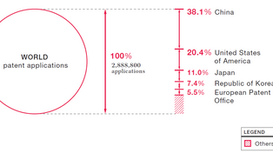What is a generic name?
- Admin

- May 19, 2023
- 1 min read

A generic name, as defined by trademark law, is a product name that has become commonly used as a general term to describe a particular type of product. The term can be established by operation of law or by extensive usage within a particular industry. The determination of whether a term is generic considers national and industry standards, as well as the perception of the relevant public. If a name is deemed capable of designating a class of goods by a sector of the public, it is considered a generic name established by usage. The use of a generic name for a product indicates that it cannot identify the source of the product and therefore lacks distinctiveness, making it ineligible for trademark protection.
In some cases, a trademark owner may improperly use their trademark to refer to a product, and competitors may follow suit. If the trademark owner fails to enforce their trademark rights, the trademark may eventually become a generic name for a class of goods, losing its ability to identify the source of the product. Once a trademark becomes a generic name, it can no longer be used as a trademark. Professional reference books or dictionaries may be used as references to determine whether a generic term has been established by usage.






































Comments